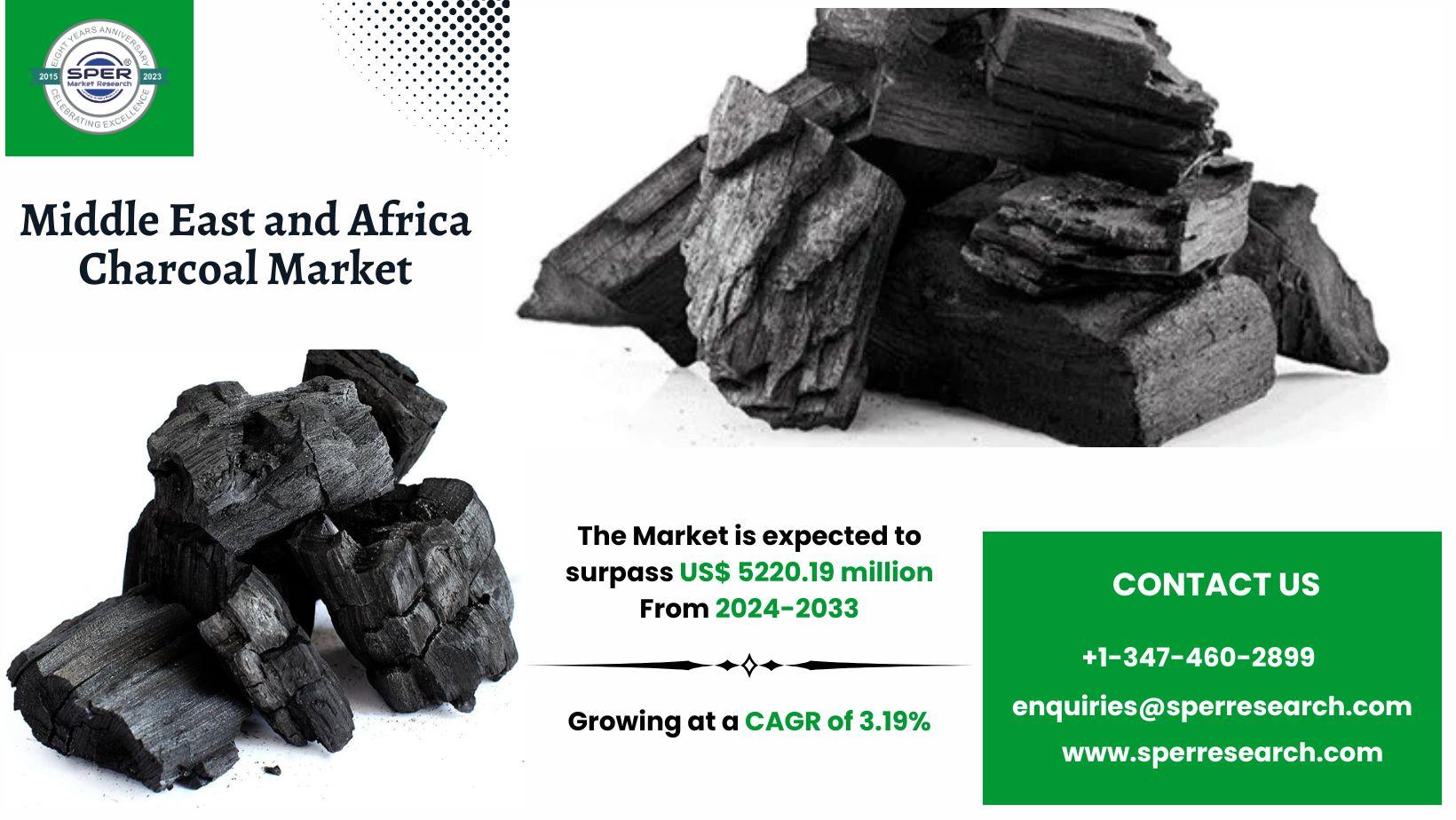Rising Demand in Middle East and Africa Charcoal Market: Key Insights

Charcoal is a lightweight, black carbon residue generated by burning wood or other organic materials in the absence of oxygen, a process termed pyrolysis. It has been used for centuries as a fuel due to its high energy output, low moisture content, and cleaner burning compared to raw wood. Charcoal is commonly used for cooking, especially in outdoor grilling and traditional stoves, as well as in metallurgy and industrial applications. Activated charcoal, a processed form, is widely used in water filtration, air purification, and healthcare for its ability to absorb toxins. Its affordability, availability, and efficiency make it a valuable energy resource worldwide.
According to SPER Market Research, “Middle East and Africa Charcoal Market Size- By Product, By Application- Regional Outlook, Competitive Strategies and Segment Forecast to 2033” states that Middle East and Africa Charcoal Market is estimated to reach 5220.19 USD million by 2033 with a CAGR of 3.19%.
Drivers:
The Charcoal market is driven by increasing demand for barbecue and outdoor cooking, especially in urban and developed regions where grilling culture is popular. In developing countries, charcoal remains a primary cooking fuel due to its affordability and availability. Growing use in industrial applications, such as metallurgy, cement production, and blacksmithing, also fuels market growth. The rising popularity of activated charcoal in cosmetics, pharmaceuticals, and water purification enhances its value across sectors. Furthermore, environmental shifts toward renewable biomass sources are encouraging the production of eco-friendly charcoal alternatives. Government and NGO support for sustainable charcoal practices is also boosting formal market development. Collectively, these factors contribute to consistent global demand across both domestic and commercial sectors.
Request a Free Sample Report: https://www.sperresearch.com/report-store/mea-charcoal-market.aspx?sample=1
Restraints:
The Charcoal market faces significant challenges, starting with environmental concerns related to deforestation and carbon emissions from traditional charcoal production. Unsustainable harvesting practices in some regions lead to forest degradation, prompting stricter government regulations. Health risks from indoor air pollution caused by charcoal use in poorly ventilated areas also limit adoption in some markets. Furthermore, a disjointed supply chain, uneven quality standards, and a lack of certification undermine customer confidence and impede international trade. Rising competition from cleaner and alternative fuels, such as LPG and electricity, further pressures market growth. Finally, limited access to modern carbonization technologies in developing nations hampers production efficiency and raises costs, restricting expansion in price-sensitive markets. Egypt held the biggest revenue share in the Middle East and Africa Charcoal Market. This is largely due to the country's high demand for cheaper and more efficient wood fuel. While other countries in the region, like Saudi Arabia and the UAE, are also significant players in the charcoal market, Egypt's consumption surpasses them. Some of the key market players are C Charcoal, Etosha, Jumbo Charcoal (Pty) Ltd., Mesjaya Sdn Bhd., Namchar and NamCo Charcoal and Timber Products
For More Information, refer to below link: –
Middle East and Africa Charcoal Market Share
Related Reports:
Octadecanedioic Acid Market Growth
Follow Us –
LinkedIn | Instagram | Facebook | Twitter
Contact Us:
Sara Lopes, Business Consultant — USA
SPER Market Research
enquiries@sperresearch.com
+1–347–460–2899




